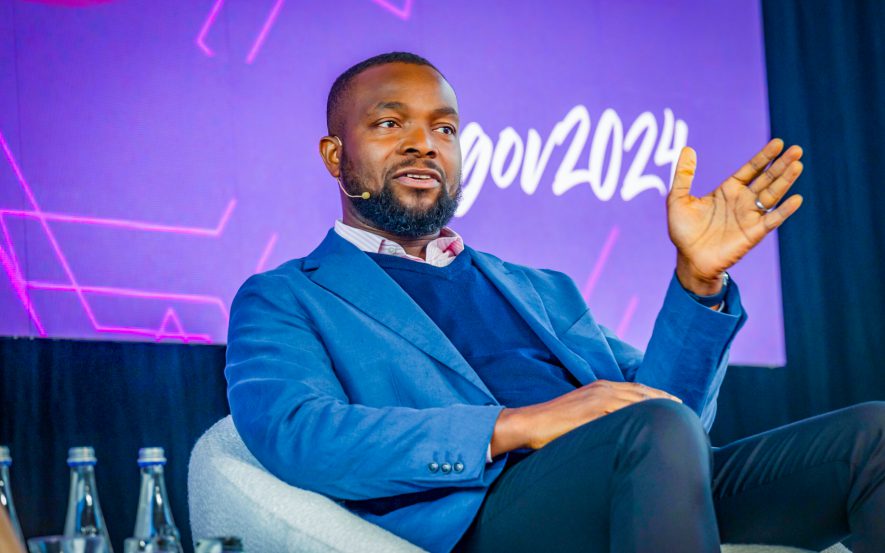
Nigeria’s Tech Initiatives for 2024: Paving the Way for Digital Transformation
Dr. Bosun Tijani, Nigeria’s Minister of Communications, Innovation, and Digital Economy, recently unveiled a series of ambitious tech initiatives for 2024. Central to these initiatives is the government’s significant investment in technological advancement, demonstrated by the disbursement of N200 million in grants over the past year. These grants, distributed to 55 researchers and innovators, are part of the Nigeria Artificial Intelligence Research Scheme (NAIRS) and the Fourth Industrial Revolution Technology Application (4IRTA) initiative. Both programs are designed to empower Nigerian innovators by providing them with the financial resources needed to develop cutting-edge solutions that can drive national growth and address critical economic challenges.
Scaling Innovations and Expanding Impact
As part of its ongoing efforts, the Ministry is focused on collecting and analyzing the results from these funded projects, with plans to scale up the most promising innovations. The aim is to ensure that these technological solutions can be effectively applied across various industries, boosting productivity and addressing key challenges within Nigeria’s economy. This approach not only enhances the practical impact of these innovations but also aligns with the broader national goals of technological self-reliance and economic diversification.
SEE ALSO: NITDA Plans Research Centres for AI, IoT, Blockchain Across Nigeria
Key Initiatives for 2024
- Expansion of the 3 Million Tech Talent (3MTT) Programme One of the cornerstone initiatives for 2024 is the expansion of the 3 Million Tech Talent (3MTT) programme, which is designed to build a robust, skilled workforce in technology across Nigeria. In its initial phase, over 30,000 fellows were trained, and the programme is on track to train an additional 60,000 individuals in the current cohort. The ambitious goal is to reach 270,000 trainees within the next 6 to 9 months, significantly boosting the pool of tech talent capable of driving innovation and economic growth in Nigeria.
- Fibre Fund Initiative The Fibre Fund initiative is another major effort aimed at enhancing Nigeria’s digital infrastructure. This project plans to deploy 90,000 kilometers of fibre-optic cable across the country, a move that will dramatically improve internet connectivity and support the digital transformation of businesses and services nationwide. The project is scheduled to commence within the next year, marking a significant step forward in Nigeria’s digital evolution.
- Build-A-Thon Programme The Build-A-Thon programme, which introduces secondary school students to embedded systems and maker culture, is one of the commendable initiatives for 2024. Initially launched in three states, the programme has rapidly expanded to 14 states, benefiting over 5,000 students through hands-on workshops and holiday camps. The Ministry plans to further broaden the programme’s reach, equipping more students with valuable technological skills and fostering a culture of innovation from a young age.

Advancing Artificial Intelligence in Nigeria
In addition to these initiatives, the federal government is making significant strides in the field of artificial intelligence (AI). A National AI Strategy is currently under review by various government agencies. Once adopted, this strategy will serve as a blueprint for AI development in Nigeria, guiding all related government initiatives and ensuring that the country remains at the forefront of AI innovation.
Furthermore, the formation of the AI Collective is a collaborative effort aimed at promoting AI research, conducting hackathons, and organizing seminars to create an inclusive and innovative AI environment in Nigeria. In a related development, Nigeria has recently launched its own Large Language Model (LLM), a milestone in the nation’s AI journey. Developed by the local startup Awarri, in partnership with DataDotOrg and other key institutions, this model focuses on enhancing language representation in AI solutions by concentrating on five low-resource languages and accented English. This initiative is expected to significantly impact Nigeria’s growth in AI within Africa and strengthen the country’s role in the global tech sector.
Bridging the Digital Divide and Enhancing Connectivity
The government’s commitment to bridging the digital divide is further evidenced by the Project 774 LG Connectivity initiative. This project aims to achieve full internet coverage across all 774 local government secretariats within the next 12 to 18 months. By leveraging the capacities of NIGCOMSAT, Galaxy Backbone Limited, and NITDA, this initiative seeks to ensure that even the most remote areas of Nigeria are connected to the digital world, thereby reducing the digital divide and fostering inclusive growth.
Legislation and Infrastructure Development
As part of its broader efforts to modernize the digital landscape, the government is also advancing the National Digital Economy Bill. Currently undergoing nationwide consultations, this bill is expected to promote trust in digital services and create a fair environment for innovation. Once passed by the National Assembly, the bill will play a crucial role in the continued growth of Nigeria’s digital economy.
Complementing these legislative efforts, the Ministry is establishing a Digital Public Infrastructure (DPI) Centre, which will serve as a central hub for the coordination and implementation of DPI across Nigeria. This Centre is part of a larger strategy to modernize government processes and improve service delivery through technology. Additionally, the National Broadband Alliance of Nigeria (NBAN) is working to achieve 70% broadband penetration by 2025, ensuring that at least 80% of the population has access to high-speed internet.
Conclusion
Nigeria’s tech initiatives for 2024 reflect a comprehensive and forward-thinking approach to digital transformation. Through strategic investments in innovation, AI, digital infrastructure, and education, the government is laying the groundwork for a more connected, inclusive, and technologically advanced society. As these initiatives continue to unfold, Nigeria is poised to strengthen its position as a leading tech hub in Africa, driving economic growth and improving the quality of life for its citizens.
Don’t miss important articles during the week. Subscribe to StartupsVibes Weekly Recap for updates


